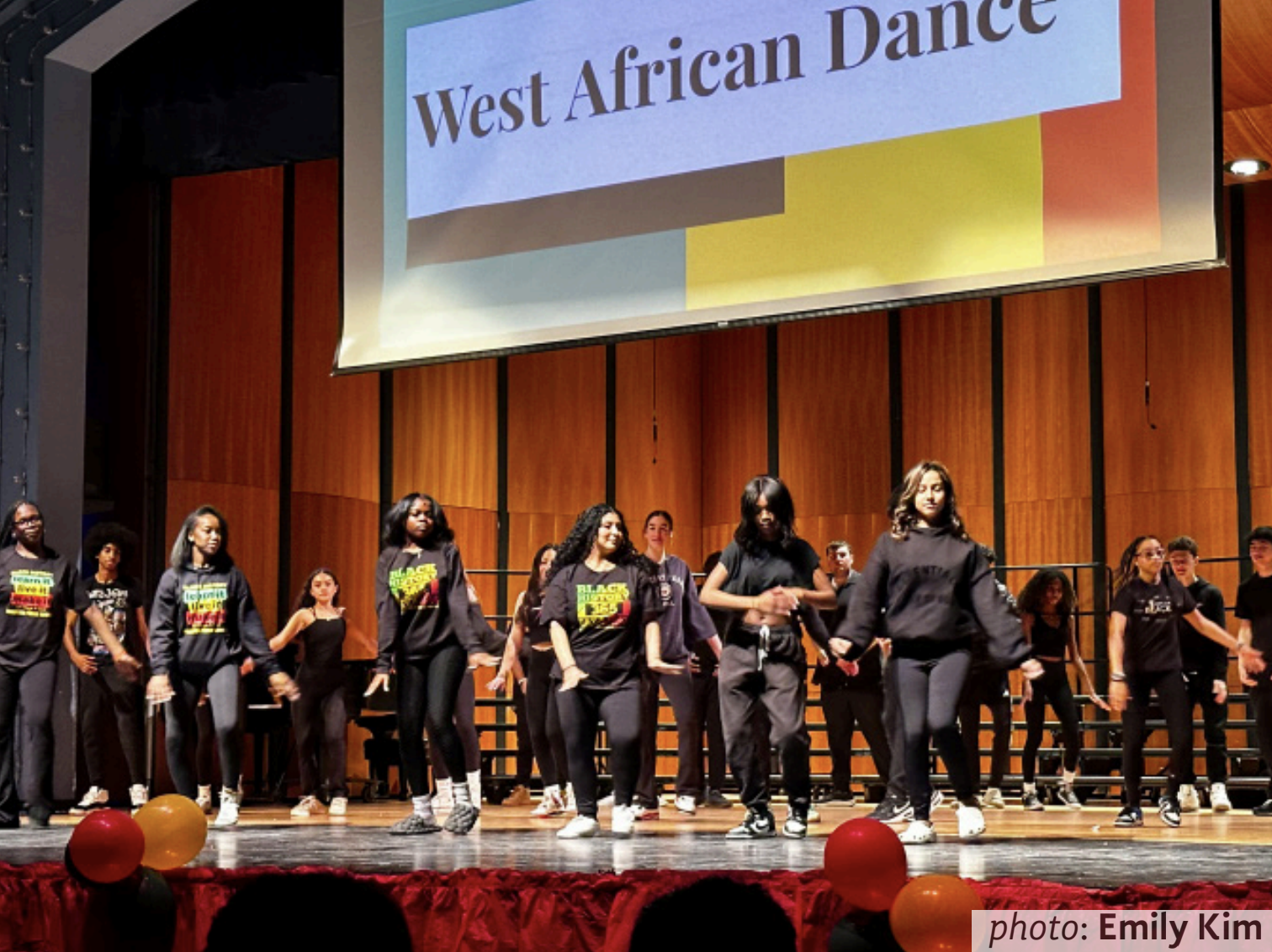In defense of school assemblies
December, 2024
Photo: Emily Kim
PHS students showcase West African dance in a school-wide assembly for Black History Month in 2023.
Since the moment we first stepped into our elementary school auditoriums, school assemblies have defined our educational experience. Whether it’s the lessons of an antibullying assembly, the passion of a motivational speaker, or the thrill of an interactive game show, these events leave lasting impressions and play a crucial role in shaping the character of our school community. Yet this year, this vital tradition has waned at PHS.
At PHS, traditional school-wide in-person assemblies have become a thing of the past. Events like the Hispanic Heritage Month and Black History Month assemblies, which were once fully in person, are now being shifted to a hybrid format. This new approach limits the assembly to a single period, with half of the student body viewing in-person, while the other half watches on Zoom. Additionally, the administration has scaled back on other annual assemblies, opting in favor of separate Zoom sessions with students only interacting in their homerooms.
This change undermines the very essence of school assemblies: bringing unity and fostering a stronger school community. Students are no longer in the same space together, sharing collective experiences, and learning with each other. Furthermore, these fragmented, virtual environments are much less engaging. During these virtual assemblies I’ve noticed a recurring pattern: my classmates gradually grow more disengaged and divert their attention to their phones as the assembly progresses — this was a less common sight at in-person assemblies.
In events such as the Hispanic Heritage and Black History Month celebrations, school assemblies usually feature different student groups showcasing the many traditions of their culture. With PHS and Princeton having a predominantly white population, it is crucial that we make space for celebrations of diversity and minority groups. In 2022, the American Psychological Association found that an inclusive classroom where students learn about diversity is proven to have many benefits, such as “improved critical thinking,” and higher achievement “for both majority and minority group members.” Though there are some classes at PHS that teach these concepts, in-person assemblies provide an opportunity for such lessons to be widely accessible, engaging, and impactful for the whole student body.
The lack of in-person assemblies this year can be largely attributed to concerns over students’ class attendance. While preserving instructional time is important, these assemblies are another way to gain a nuanced understanding of the group being highlighted — far surpassing the depth covered by the PHS curriculum. Many students at PHS do not take Spanish as a world language, and therefore don’t have the opportunity to learn about Latin American history. For these students, the Hispanic Heritage Month Assembly is one of the only opportunities to gain a thorough understanding of Latin American history and culture.
By sidelining the assemblies in favor of a stricter focus on class time and schedules, PHS is removing vital opportunities to expand and enrich students’ learning. Underrepresented narratives are at greater risk of not being told, and students are robbed of an opportunity for a deeper and more inclusive understanding of the world. The PHS administration needs to reinstate these events and make sure they are a main focus of that day, and not a mere afterthought. Assemblies are much more than routine school events — they are unique experiences that inspire learning in ways that a traditional classroom cannot.